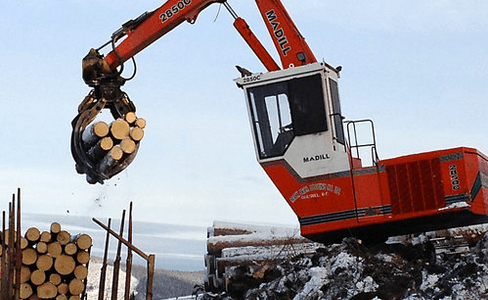With access to adequate investment capital, we can use our Indigenous entrepreneurs to create opportunities for our communities that will help build prosperity for all Canadians, writes Sharleen Gale.
For generations, First Nations communities have been constrained by the Indian Act and decades of government paternalism and over-regulation. We did not have the chance to break into the modern economy, and lacked the basic business tools available to other Canadians. We could not borrow money to buy and build our homes, let alone get the funds needed to make major investments.
First Nations are proud people – and we have a history of trade and commerce that goes back thousands of years before newcomers came into our land. We want to build local economies and create jobs and new businesses in the process. To break the cycle of poverty and to put our people back in control of their lives, requires access to capital.
First Nations have been petitioning the government of Canada for years, requesting access to investment capital. For example, the federal government is using Export Development Canada to underwrite its purchase of the Kinder Morgan Trans Mountain Pipeline. This kind of funding is but one of several options available to the federal and provincial governments to facilitate First Nations participation as owners in major projects.
Please understand something very important: First Nations are not looking for handouts or “free money.” We understand business and the value of large and long-term equity investments. Where possible, we leverage our resources to attract money for our business plans. Our First-Nations-owned business are expanding rapidly and our Aboriginal Economic Development Corporations have become major players in regional economies.
We are looking for access to capital based on solid and externally validated business cases. We are considering major investments in infrastructure that impact our traditional territories.
Most Canadians have only a limited sense of how much First Nations business is changing across this country. First Nations people own hundreds of businesses. Our communities, through their economic development corporations, have made major investments and are engaged in constructive and successful collaborations with resource, infrastructure and other businesses.
We are not the First Nations governments and communities of yesteryear, when we lived under the constant control and surveillance of the government and faced major limitations on our business operations. Many of our communities are asserting our traditional values to influence commercial terms and modern-day governance regimes. We are exercising our treaty and Indigenous rights and using the rights we have gained under Canadian law through Supreme Court decisions. We have hundreds of our young people at college or university or in apprenticeship programs. We are working collaboratively to share resources and to find strength together to create the economic basis that enables us to deliver social infrastructure needs to our people.
As Indigenous governments, we are taking our full and proper place inside Canada.
The organization I chair, the First Nations Major Projects Coalition (FNMPC), is determined to be an important part of this transformation. FNMPC is a consortium of 44 First Nations from British Columbia, Alberta and Ontario. We are reaching out for additional Indigenous partners across the country and are open to working with domestic and international companies who share our goals and aspirations.
The members of the FNMPC work together to identify investment and business opportunities and to determine how best we can engage with the major projects that are so important in shaping our collective future. Collectively, the members of the coalition have the ability to participate in some of the largest commercial undertakings in the country and to have our Indigenous values influence the management of those projects.
But we need access to capital to achieve this vital goal. Ownership and equity partnerships are important to First Nations. We have access to tools such as the First Nations Fiscal Management Act that will help us manage the wealth transfer that is to occur.
First Nations need loans made available to us, based on sound business cases, not handouts or grants. Through the coalition, we have the collective capacity to evaluate, negotiate and develop large-scale resource developments. We want into the Canadian economy, on an equitable and fair basis. To get there, we need comparable access to investment capital, much as Canadian companies and governments do, to finance our participation in these major initiatives.
We hope that Canadians understand the significance to First Nations and to the country of the commercial steps that we are taking. We cannot do this in isolation from other Canadians and corporate partners. With access to adequate investment capital, we can use our Indigenous entrepreneurs to create opportunities for our communities that will help build prosperity for all Canadians.

Sharleen Gale
Sharleen Gale is the Chief of the Fort Nelson First Nation. She is an active member of the Fort Nelson First Nation and envisions a future where all members are working together to become a strong, proud, healthy, and self-reliant Nation. She is the grand-daughter of Fred Burke and Madeline Needlay. Her roots run deep in the lives of her people and she enjoys being on the land with her family exploring the territory and teaching her son the traditional ways on the lands and how to hunt, fish, and gather medicines and berries.

